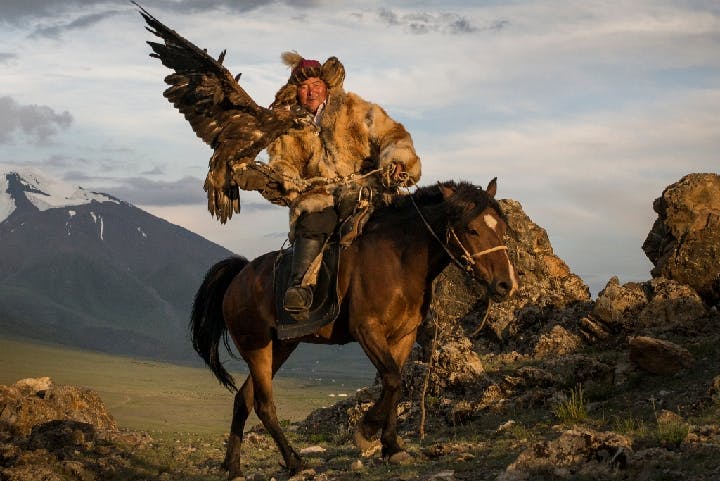For most Russians, poaching is a crime. For VIPs, it’s a luxury sport.
– Carlo Massimo
Russians are turning from legal hunting to poaching. Sometimes it’s a luxury sport. Other times, it’s just for survival.
Hunting is an ancient tradition in Russia, celebrated by Tolstoy and Turgenev, practiced with gusto by everyone from the czars to the Bolsheviks. But lately it’s been in decline: fewer Russians than ever, it seems, are interested in the sport. Or, at least, fewer than ever are applying for game permits. Poaching, on the other hand, has never been more popular. Russia’s Ministry of Natural Resources found that in 2012, poachers made off with 18 billion rubles’ worth of game, 2 billion more than the legal harvest.
Most of this poaching is carried out by organized crime, black market traffickers who prowl the forests of Russia’s remote Amur and Kamchatkan east. It’s as lucrative a business as it is destructive: tiger pelts, illegal caviar, and bear bile, the latter used for traditional Chinese medicine, fetch enormous prices abroad.
But the black marketeers are not Russia’s only poachers, and poaching is more than an ecological disaster. It’s the embodiment of civil society in Putin-era Russia, a country where the cities thrive as the country decays, and where limitless power and desperate poverty stand side by side.
As Kathleen Braden explains in Eurasian Geography and Economics, the most visible poachers in Russia belong to a “VIP” elite: people with the money or political clout to poach with impunity. They may be major statesmen or local policemen or wealthy urbanites; whatever their background, they are the most flagrant breakers of the game laws. In 2009, the presidential envoy to parliament, a Moscow CEO, and several local officials crashed their (Gazprom-owned) helicopter on a poaching foray. Other examples abound, and few result in prosecution, much less conviction.
The VIPs, for all the press they get, make up only about five percent of poachers; between a quarter and a third, on the other hand, are ordinary rural Russians. These poachers are almost exclusively blue-collar, typically low-income, and often unemployed. They do not make the headlines. And when caught, they go to jail.
The ordinary, invisible poachers have, by and large, resorted to their crime out of desperation. Of course, some go in for the thrill of outwitting game wardens, as poachers do in every country. But many more are simply frustrated hunters who cannot understand the regulations, or cannot afford a license. In Soviet times, state-sponsored shooting clubs kept hunting well-regulated and affordable; since all land was public, there was no shortage of space or game. Today, the game laws have become so byzantine, and so inconsistent in their balancing of regional and federal regulations, that many hunters simply ignore them. Hunting land, too, is increasingly ending up in private hands, making hunters into trespassers and thus into poachers. And licensing fees cost up to a half-month’s salary for many rural Russians, an impossible expense.
And for some of these Russians, hunting is far more than sport. Food is increasingly in short supply in the provinces, where unemployment and lack of infrastructure mean empty shelves at the grocery store. A handful of rifle cartridges costs less than butcher’s meat — an important consideration for the unemployed.
Russian poachers are divided along the same class lines as the rest of the country: one small, urban, incredibly wealthy class flaunts its position above the law, while a huge, rural class is left to rot. The country is following two opposite trajectories, equal only in intensity.
The same class that makes up most of Russia’s VIP poachers, and which undergirds President Vladimir Putin’s government, emerged immediately after the fall of the Soviet Union, swelling in power with the privatization of oil and gas. They were, and remain, men of the city, uninterested in agriculture and the countryside. Since 1991, 13,000 villages in Russia have simply ceased to exist. The ones that remain face widespread unemployment, indifferent schooling, and rampant alcoholism.
The new titans of the 21st century — Brazil, Russia, China, India, and the Gulf states — all share this disparity. The city streets teem with Maseratis and luxury high-rises; in the country, even drinking water can be scarce. The lavish stadiums that Brazil built for the 2014 FIFA World Cup, now empty and decaying, symbolize the situation neatly.
Luxury hunting is part of this equation, just as much as the flashy cars and dazzling architecture. Saudi Arabia’s elites, for instance, are currently driving the houbara bustard, a large game bird, into extinction in Pakistan, a country where open sewers are common and electricity is scarce. And in Russia, hunting has particular resonance beyond War and Peace. Putin has made rural sports like hunting, as well as his own rugged pectoral demonstrations, into icons of a strong, defiant Russia. The freedom to defy the law, particularly with a rifle in hand, fits remarkably well with the myth of the shirtless, hairy-chested maverick, facing down the world.
Poaching, in a perverse way, has become vaguely patriotic. At least, for Russia’s VIPs.
* * *
The Source: Kathleen Braden, “Illegal recreational hunting in Russia: the role of social norms and elite violators,” Eurasian Geography and Economics 55.5 (2014)
Photo courtesy of Flickr/David Baxendale
